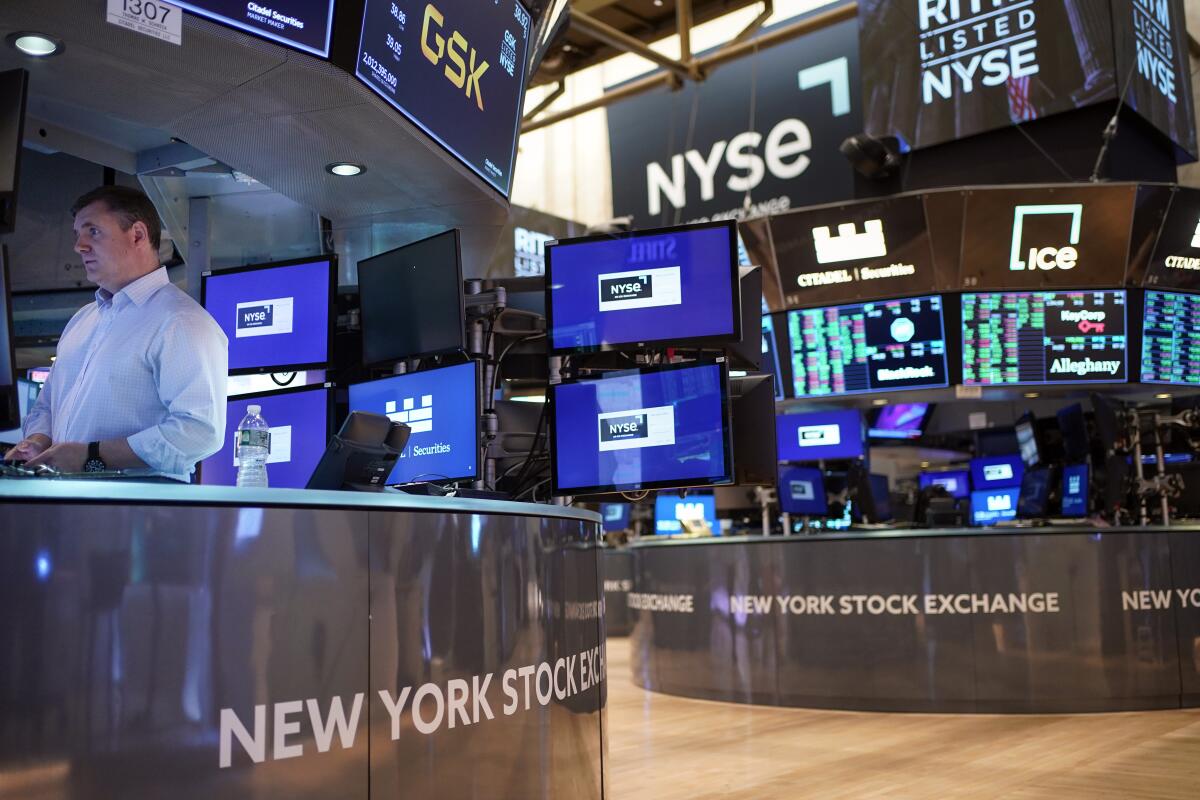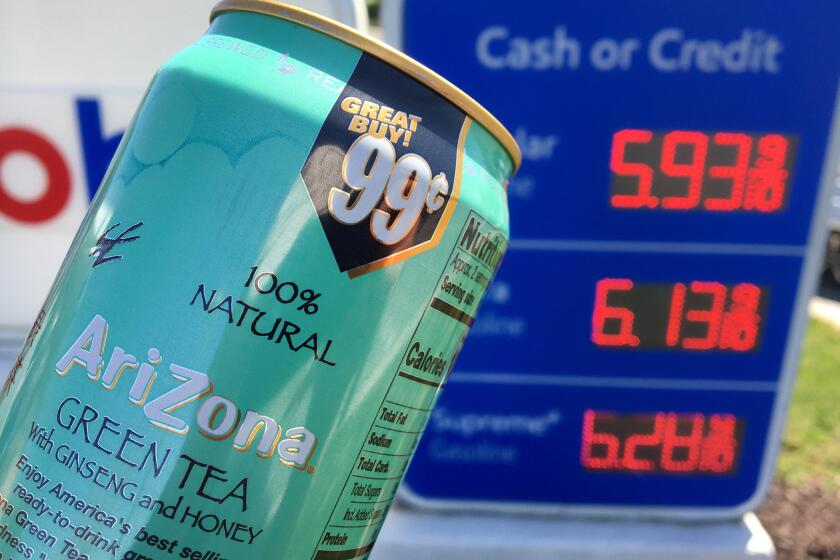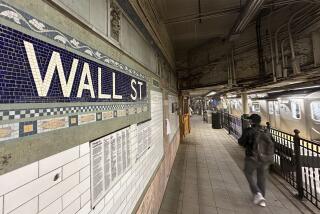Wall Street hits 3-month high as inflation cools

Wall Street roared to three-month highs Wednesday after inflation cooled more than expected last month, sparking speculation that the Federal Reserve may not have to be as aggressive about hiking interest rates as feared.
The Standard & Poor’s 500 index rose 2.1% amid a widespread rally after a report showed the nation’s biggest economic challenge, inflation, slowed to 8.5% at the consumer level last month from 9.1% in June. Technology stocks, cryptocurrencies and other hard-hit investments were some of the day’s biggest winners.
The Nasdaq composite, whose many high-growth and expensive-looking stocks have been particularly vulnerable to interest rates, was up a market-leading 2.9%. Bitcoin rose 2.9% to $23,689, and the Dow Jones industrial average gained 469 points, or 1.6%, to close at 33,310.
Much of July’s slowdown in inflation was due to lower prices for gasoline and oil. But even after ignoring that and volatile food prices, so-called “core inflation” held steady last month instead of accelerating as economists had forecast.
The data encouraged traders to scale back bets for how much the Fed will raise interest rates at its next meeting. They now see a hike of half a percentage point as the most likely outcome, according to CME Group. A day earlier, they were betting on a more aggressive hike of 0.75 of a percentage point, the same as the last two increases.
Such differences may not sound like much, but interest rates help set where prices go across financial markets. And higher rates tend to pull down prices for everything, including stocks, commodities and cryptocurrencies.
Prices for bonds soared immediately after the inflation report’s release, pulling their yields lower. The yield on the two-year Treasury, which tends to track expectations for the Fed, fell to 3.14% from 3.27% late Tuesday.
Tall cans of AriZona iced tea have cost 99 cents since 1992. The family behind the company says it’s committed to that price even as the prices of aluminum and corn syrup climb higher.
The 10-year yield sank more slowly, down to 2.76% from 2.78%, narrowing how far it is below the two-year yield. Many investors see a gap as a fairly reliable signal of a coming recession.
Recession worries have built as the highest inflation in 40 years squeezes households and corporations around the world. The Fed and other central banks have been hiking rates to slow the economy in hopes of stamping out inflation, but they risk choking it off if they move too aggressively.
“It’s a very knife-edge type of path that they are trying to tread here,” said Brian Nick, chief investment strategist at Nuveen.
To be sure, inflation is still painfully high, and the expectation is for it to stay so for a while. But Wednesday’s data nevertheless rejuvenated Wall Street, which staggered after a stronger than expected jobs report Friday that raised expectations for a more aggressive Fed. It bolstered hopes that a peak in inflation — and thus in the central bank’s most aggressive rate hikes — may be on the horizon.
“This is a step in the right direction, but keep in mind we have many miles ahead of us before inflation normalizes,” said Mike Loewengart, managing director of investment strategy at E-Trade from Morgan Stanley.
The Federal Reserve will get a few more highly anticipated reports before its next announcement on interest rates Sept. 21, which could also alter its stance. Those include reports showing hiring trends across the economy due Sept. 2 and the next update on consumer inflation that’s coming Sept. 13.
More immediately, reports this week will show how inflation is doing at the wholesale level and whether U.S. households are still ratcheting down their expectations for future inflation, an influential data point for Fed officials.
Wednesday’s inflation data nevertheless helped stocks across Europe climb to modest gains, while markets that closed earlier in Asia were mostly down. Germany’s DAX returned 1.2%, Japan’s Nikkei 225 fell 0.6% and Hong Kong’s Hang Seng lost 2%.
On Wall Street, companies in the housing industry were strong on hopes that a less aggressive Fed could mean less pressure on mortgage rates. Home builder D.R. Horton gained 4.7%, PulteGroup rose 4.6% and Lennar climbed 3.6%.
Cruise lines and other travel-related companies also made big gains. Carnival rose 9.2% and American Airlines rose 3.1%.
Netflix, a formerly highflying and high-growth stock that has plunged to be this year’s worst in the S&P 500, was up 6.1%, though it remains down nearly 60% for 2022.
AP business writer Joe McDonald contributed to this report.
More to Read
Inside the business of entertainment
The Wide Shot brings you news, analysis and insights on everything from streaming wars to production — and what it all means for the future.
You may occasionally receive promotional content from the Los Angeles Times.











